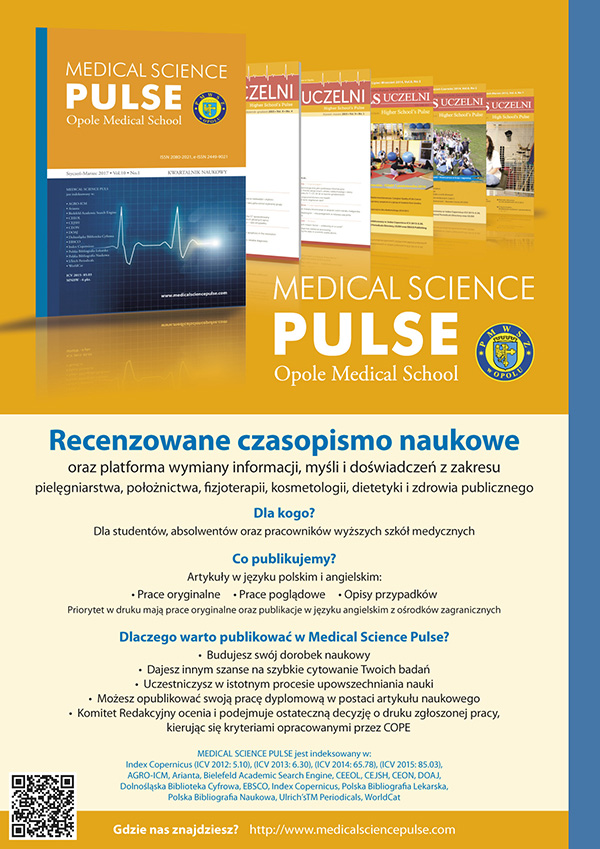The knowledge of women with epilepsy on motherhood
The knowledge of women with epilepsy on motherhood
Author(s): Ilona Jasnos, Aleksandra Cieślik, Joanna Wanot, Justyna Sejboth, Dariusz Szurlej, Piotr GurowiecSubject(s): Psychology, Health and medicine and law, Welfare services
Published by: Państwowa Medyczna Wyższa Szkoła Zawodowa w Opolu
Keywords: epilepsy; pregnancy; folic acid
Summary/Abstract: Background: Epilepsy is one of the most common neurological conditions. Approximately half of the 50 million suffering from epilepsy are women. Although the pregnancy in the course of epilepsy is considered a high risk pregnancy, based on many observations, it is estimated that the chance of delivering a healthy child by a woman with epilepsy exceeds 90%. However, the risk of congenital defects is 2–3 times higher than in healthy women. It is mostly caused by antiepileptic drugs. Material and methods: The study was conducted on 139 women with epilepsy, aging 18–40 years, who wereunder supervision of the neurology clinic in the Silesia voivodeship. The studies were conducted using the survey elaborated by the authors for women in reproductive age with epilepsy, based on the questionnaire published by Polish Center of Epilepsy for Women. Results: Most of the surveyed women have had epilepsy for longer than 10 years (52.52%). The smallest numer of women has been suffering from epilepsy for less than a year (7.19%) A majority of respondents were treated with monotherapy (51.8%). Almost half of the respondents did not have a child (57.55%). According to76.26% of respondents epilepsy is not a contraindication for having children. A statistically significant correlation was demonstrated (p = 0.048) between education and the desire to get information about contraception and its impact on epilepsy. Conclusions: 1/3 of interviewed women with epilepsy has insufficient knowledge of responsible motherhoodand it concerns mostly women with the lowest level of education. Most women suffering from epilepsy becomeinterested in issues related with motherhood only after they become pregnant whereas, women with at least secondary education are more interested in issues of procreation and responsible motherhood.
Journal: Medical Science Pulse
- Issue Year: 11/2017
- Issue No: 3
- Page Range: 21-25
- Page Count: 5
- Language: English

